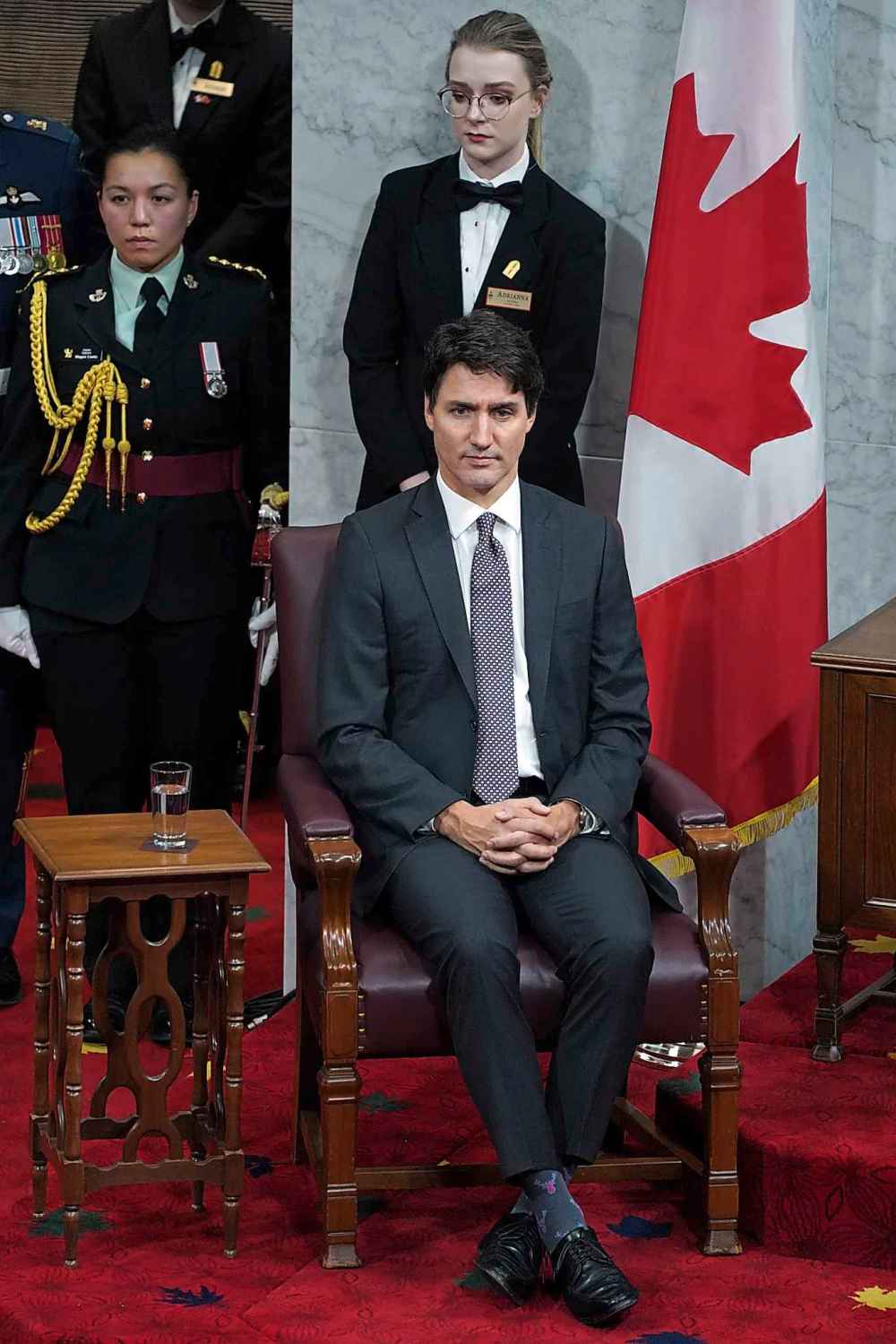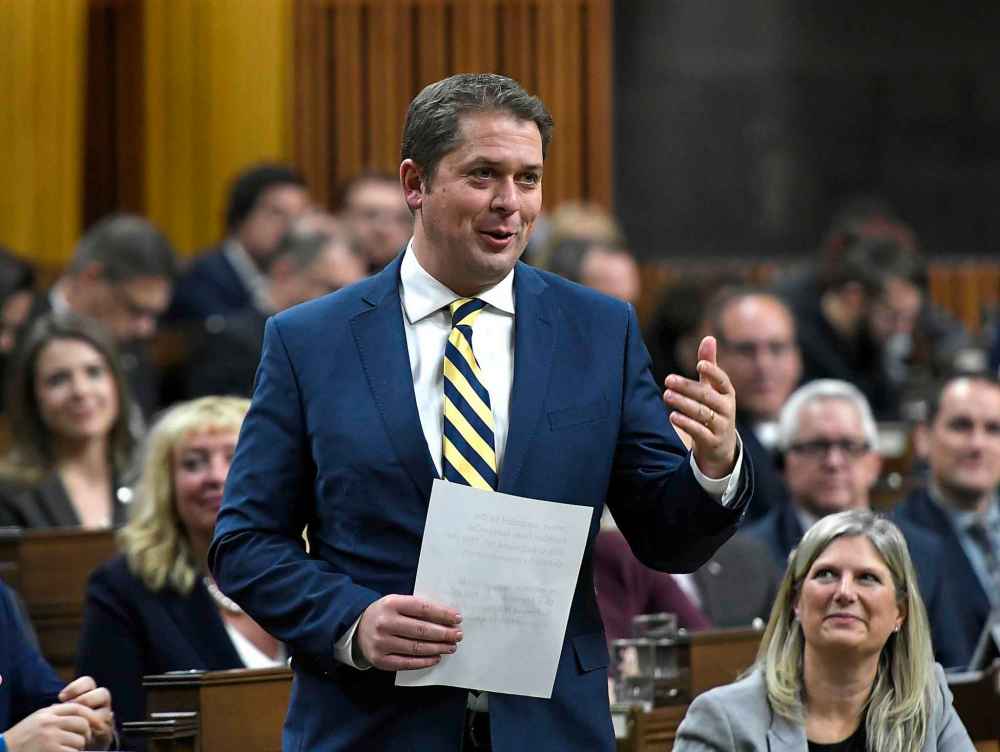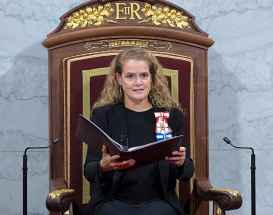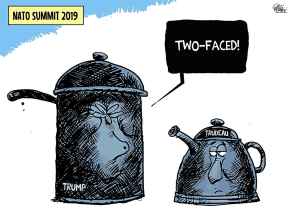Throne speech sets shaky stage for new Parliament
Read this article for free:
or
Already have an account? Log in here »
To continue reading, please subscribe:
Monthly Digital Subscription
$0 for the first 4 weeks*
- Enjoy unlimited reading on winnipegfreepress.com
- Read the E-Edition, our digital replica newspaper
- Access News Break, our award-winning app
- Play interactive puzzles
*No charge for 4 weeks then price increases to the regular rate of $19.00 plus GST every four weeks. Offer available to new and qualified returning subscribers only. Cancel any time.
Monthly Digital Subscription
$4.75/week*
- Enjoy unlimited reading on winnipegfreepress.com
- Read the E-Edition, our digital replica newspaper
- Access News Break, our award-winning app
- Play interactive puzzles
*Billed as $19 plus GST every four weeks. Cancel any time.
To continue reading, please subscribe:
Add Free Press access to your Brandon Sun subscription for only an additional
$1 for the first 4 weeks*
*Your next subscription payment will increase by $1.00 and you will be charged $16.99 plus GST for four weeks. After four weeks, your payment will increase to $23.99 plus GST every four weeks.
Read unlimited articles for free today:
or
Already have an account? Log in here »
Hey there, time traveller!
This article was published 05/12/2019 (2197 days ago), so information in it may no longer be current.
It isn’t a complete picture, but it is a good first glimpse into what a minority government agenda looks like.
Thursday’s throne speech delivered by Liberal Prime Minister Justin Trudeau was a triumph of tightrope walking. There were a few items designed to keep howling Conservatives at bay, a smattering of gestures necessary to cultivate necessary support from the NDP, and a lot of vague and non-committal language binding it all together.
As opposed to an agenda for government over the forthcoming Parliament, the speech read more like a list of suggestions to all parties that made it seem as if the government’s agenda was far from being set in stone.

In the concluding section, Gov.-Gen. Julie Payette stressed collaboration and humility should be the principles guiding all parties: “The mandate of this recent election is a starting point, not the final word. The government is open to new ideas from all Parliamentarians, stakeholders, public servants and Canadians.”
This would suggest, at face value, Trudeau has decided to be calm, cool and kind going into this Parliament.

It’s a far cry from the brash and arrogant prime minister seen when he had a majority mandate to rely upon. And yet, while that may show he is maturing as a person, it’s not necessarily a posture that will translate into effective law making and fiscal management.
Parliaments cannot be governed by consensus, particularly in a day and age of hyper-partisanism. And even as the Liberals are acknowledging in the throne speech “there are good ideas across parties,” many of those good ideas work at cross purposes.
The Conservatives are dedicated to building more pipelines to make Alberta crude more cost competitive with other oil producing nations; the New Democrats, along with the Greens, are dedicated to stopping pipeline construction and refocusing policy on weaning the economies of Alberta, Saskatchewan, and Newfoundland and Labrador off fossil fuels.
The Liberal proposal to bridge these two extreme positions is to adopt both: “And while the government takes strong action to fight climate change, it will also work just as hard to get Canadian resources to new markets, and offer unwavering support to the hardworking women and men in Canada’s natural resources sectors, many of whom have faced tough times recently.”

Although there may be some common sense in showing support for both positions, when it comes time to vote on key legislation, Parliament will be deeply divided by ideology. On each vote on each divisive issue, the Liberals come one step closer to losing the confidence of Parliament.
The main proposals in the throne speech follow the same approach: a sprinkling of pledges designed to earn the support of opposition parties or at least dampen their enthusiasm to bring down the government.
The Liberal government intends to introduce a middle-class tax cut. It may not make good fiscal policy, but it will create a dilemma for the Conservatives, for whom reducing taxes is a top concern.
However, cutting taxes will shrink the Liberal government’s capacity to spend on priorities embraced by the NDP and Greens and perhaps the Bloc Québécois.
The Liberals are promising to “take steps to introduce and implement” a national drug program — a lot of words to communicate how tenuous the idea is from both a political and fiscal perspective.

The dreaded carbon tax will stay, meaning the Tories may vote against any fiscal bills (even one that includes a tax cut) to enforce their disgust with any tax that makes gasoline and other fossil fuels more expensive.
For the NDP and Greens, vague promises about making electric cars and energy-efficient homes more affordable.
The devil will be in the details of those proposals.
Perhaps the greatest single indication of how difficult, maybe even impossible, it will be to navigate this minority Parliament was the disheartening language around regional economic concerns.
The throne speech noted “regional needs and differences” matter. Given the threats being made in Alberta and Saskatchewan to start a holy war to either dismantle the equalization transfer system or boost emergency economic subsidies for struggling provinces, acknowledging regional needs matter is an understatement.
The oil-producing provinces are suffering because of low oil prices. Perhaps there is something hidden deep within the Liberal minority government’s agenda that will make a meaningful contribution to not only economic stability, but a future where these provinces are less reliant on resources. It doesn’t seem likely.
At a time when Canadians need a government with a bold vision for the future, we appear to be getting a government trying to be all things to all parties. That may ultimately keep the Liberals in power, but it won’t do much to help move the country forward.
Offering compromise over change, and half-measures instead of decisive action, isn’t the kind of government we need right now.
dan.lett@freepress.mb.ca

Born and raised in and around Toronto, Dan Lett came to Winnipeg in 1986, less than a year out of journalism school with a lifelong dream to be a newspaper reporter.
Our newsroom depends on a growing audience of readers to power our journalism. If you are not a paid reader, please consider becoming a subscriber.
Our newsroom depends on its audience of readers to power our journalism. Thank you for your support.













.jpg?h=215)
